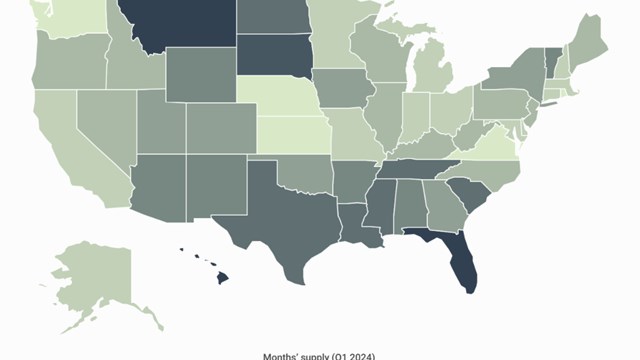You know what they say about The Benjamins: it truly is all about them. When attempting to purchase shares in a co-op or outright buy a condo, a potential buyer's finances are likely to be scrutinized fairly intently. So like a teen sprucing up for picture day at school, buyers may feel inclined to make sure that their finances represent what they envision to be their best selves before handing over their information for board review. But there's a distinct difference between putting one's best foot forward and misrepresentation. What are some common practices whereby buyers add some sheen to their bank accounts? Where are the ethical lines therein? We ran this by the experts.
Sugar Parents
The degree to which an buyer's finances will be examined is entirely dependent on the intensity of the board in question. Especially in a co-op scenario, boards more or less have carte blanche to reject any buyer for any reason, and in New York City luxury properties, this often comes down to money. Only Suffolk County requires cooperative boards to disclose their reasons for rejecting a buyer.
Margery N. Weinstein, Esq., an attorney and a partner with the Manhattan law firm of Ganfer & Shore, LLP, is aware of at least one extreme case where a property needs to be purchased upfront, without any borrowing whatsoever. "If you're buying for $15 million, you're paying $15 million in cash," she says. "Which certainly limits the amount of people who could purchase in the building, even among the very rich."
The aforementioned example, however, is an extreme one, as most buildings allow some leeway for buyers to allocate funds prior to buying in. "Some boards allow gifting, which means that you get a gift letter from the parents or another benefactor, and then you display proof of funds," says Alyssa Perkel, vice president of the transfer department of AKAM Associates, a Manhattan-based management firm. "I would say that most co-ops permit that. It allows the buyer to be more attractive, because they have more liquid assets in the bank; presumably they can maintain the monthly payments and their income is fine, but at the time of purchase, they don't have a lot of liquid assets. This would rectify that."
Outside of gifting, different boards allow parents to contribute to their (adult) children in other ways. Perkel notes that co-purchasing, wherein a parent and child are both stock-owners or lessees, is allowed by some boards, while others prefer that the occupants of the property are actual owners, thus the occupant would have a more vested interest in his or her property.
Yet other co-ops go so far as to allow parents to purchase directly for the child. "So only the parents are on the stock or leases, and the child lives in the apartment," explains Perkel. "So the child has no legal obligation outside of following the house rules, and their finances are not really disclosed, thus rendering it unimportant however financially soluble they are. This is less permitted, as it's much like a sub-lease, upon which many co-ops frown."
Homes on Homes
Another thing that buyers can do to look more cash rich is to mortgage another property. "Say the buyer is sitting on a property in Westchester that has no mortgage," hypothesizes Weinstein. "If it's worth $2 million, they can put a $1 million mortgage on it and take out that money. It's not so much a loophole as it is a way to move money around such that they have more liquidity and look more appealing to a board. Of course, in New York State, we have a hefty mortgage recording tax, so it may end up being an expensive move."
Some boards have a set percentage of costs which they will allow a buyer to borrow. If said buyer can't amass the funds to make up for the remaining portion, they can apply for something called unrecognized financing. Weinstein explains:
"Let's use the example of a $5 million co-op which allows a buyer to borrow up to 50% of the share cost. As the CEO of a corporation, I will go to a private bank with which I've had a long relationship, and arrange to borrow the $2.5 million allowed, but they'll potentially give me another 30% more in unrecognized financing, because maybe I want to gut renovate the apartment. The board will recognize that $2.5 million, I'll cover the rest, and the bank will not be assuming a lot of risk, as it's holding the stock and proprietary lease as collateral for the loan. The lent money over that $2.5 million will remain unrecognized by the board and co-op. Now, this isn't illegal, but I would presumably be doing something contrary to the 'no encumbrance without board approval' requirements and wording of the proprietary lease. And the board can check after the closing with New York filings and see that there's two UCC1s filed against my apartment rather than one. They'd realize that I'd taken out that second additional loan, and they could technically require me to undo the latter one. But in my experience, only one board has in fact done this."
Shenanigan Crackdown
Now, while all of the above may be viable in certain cases, it again comes down to a specific cooperative's requirements. What might pass muster as a viable means of padding a buyer's coffers in one instance may be downright fraud in another. Clearly, cooperatives must be on the lookout for those trying to circumvent the rules they've established.
"Boards can protect themselves against chicanery by requiring production of six months' bank or securities' account statements to determine what the average balance has been over that period of time," notes David L. Berkey, Esq., a partner with the Manhattan law firm of Gallet Dreyer & Berkey, LLP. "Any recent increase in the balance would result in interview (or pre-interview) questions to clarify the nature and extent of the purchaser's assets."
In addition, boards often require the last two years' of a buyer's tax returns, proof of regular income, and occasionally financial statements certified as accurate by the purchaser's accountant. "Careful review of the tax returns can show a lack of reported income from the assets claimed to be owned by the purchaser," says Berkey.
The odds of a buyer getting away with fraud is minimal at best, so it's truly in his or her best interests to stay within the parameters dictated by the reviewing board, engaging in only the type of financial maneuvering that is within the letter of the law.
"Co-ops ask for a good amount of info, so I don't think that you can really hide anything," says Perkel. "It's possible not to disclose everything, but anything omitted may pop up on a tax return, like 'wait... you own an investment property?!"
Don't let your real estate eyes water such that they grow too big for your bank account.
Mike Odenthal is a staff writer for The Cooperator.







Leave a Comment